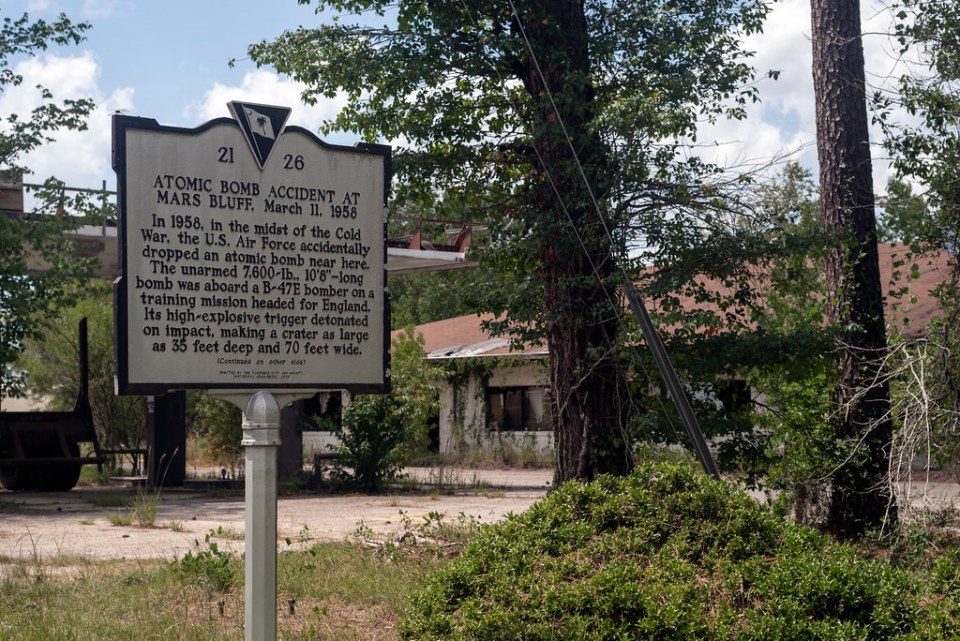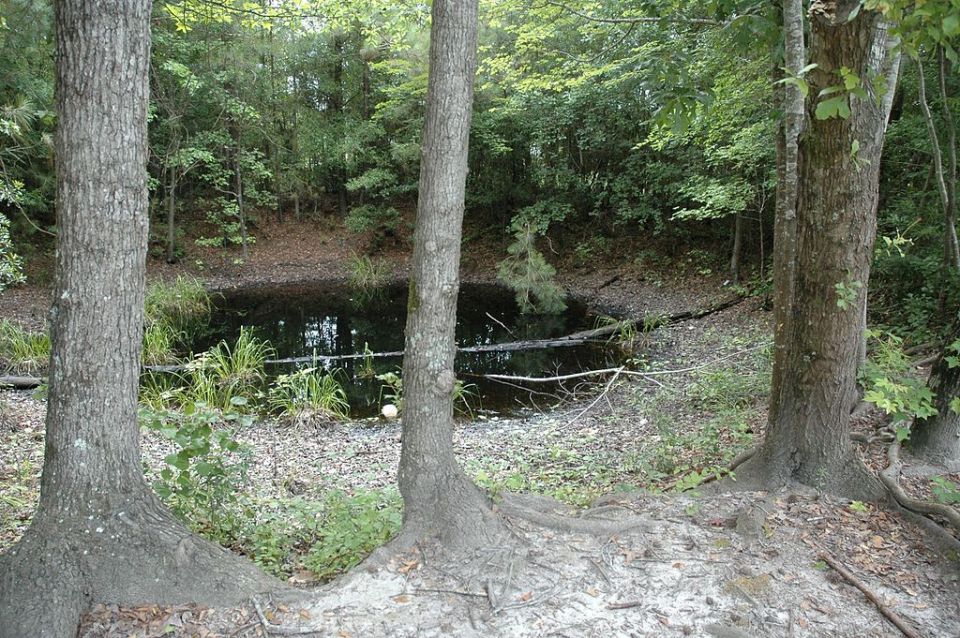On March 11th, 1958, Walter Gregg was puttering around in a workshop on his Mars Bluff, South Carolina property. Gregg’s wife, his children and their friends, and his niece were also nearby. Without warning, an ordinary day took a menacing turn. After Walter Gregg heard an ear-splitting blast that shook the ground, followed by a blinding plume of black smoke—Gregg was convinced that a plane had crashed on his property.
Photo by Wikipedia
Walter Gregg was unaware that a 26-kiloton Mark 6 atomic weapon which was a more robust version of the Fat Man bomb that had been dropped on Nagasaki had accidentally tumbled out of a B-47 Stratojet that was flying overhead. An improperly secured harness locking pin caused the Mark 6 to fall to earth. Thankfully, the bomb’s plutonium core didn’t detonate, but thousands of pounds of conventional explosives did.
By some great miracle, there were no deaths associated with the accident. Walter Gregg’s wife suffered a nasty blow to the head, but otherwise there were no major injuries. Gregg’s house was completely destroyed, and his garden was reduced to a 30-foot deep crater. The US military ultimately took responsibility for the accident and paid Gregg $54,000 to relocate. Walter Gregg befriended the crew of the plane responsible for leveling his house. He exchanged letters with the officers for many years after the incident.

Photo by Flickr
Those who are curious about the site of one of the most notorious accidents of the Cold War can travel to Florence, South Carolina to view the impact crater. Fragments from the Mark 6 bomb are on display in a nearby Florence museum. Though the water in the 30-foot Mars Bluff crater appears sinister and murky, no radiation was released when the Mark 6 exploded. The infamous crater has been used as a burn pit for lumber and foliage—which is why the rainwater that fills it often appears discolored.
The path leading to the impact crater is overgrown, but there are a few signs hidden among the trees that point visitors in the right direction. There is also a cutout of the Mark 6 bomb, and a display that features several newspaper articles about the incident. Although the impact crater is currently on private land, the area is federally protected. An official historical marker located near US Highway 301 alerts travelers that they’re in close proximity to one of the most embarrassing flubs of the Cold War…
Click Here to Read the Full Original Article at Unusual Places…
